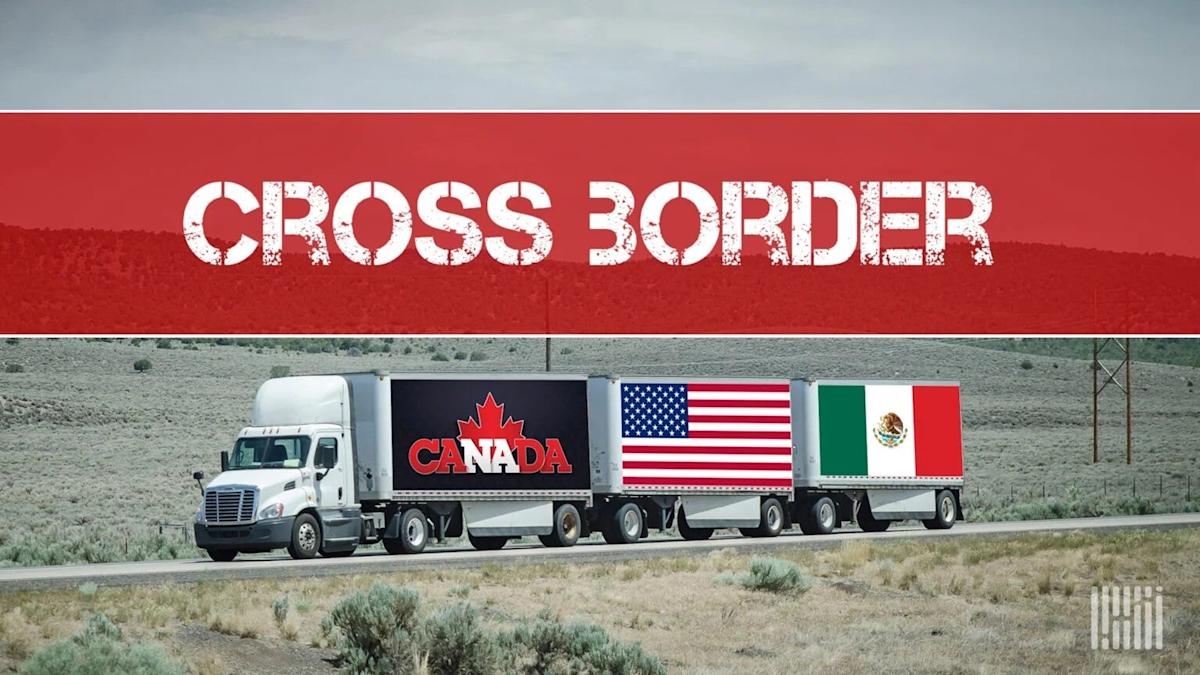U.S. businesses are racing to claim United States-Mexico-Canada Agreement (USMCA) exemptions as rising tariffs on steel, aluminum, and other goods push import costs higher.
The percentage of goods from Canada classified as USMCA compliant rose to 81% in June, up from 56% in May, according to U.S. Customs and Border Protection data reviewed by Fitch Ratings.
Mexican imports that met USMCA criteria in June increased to 77%, compared to 42% the previous month.
Third-party logistics providers report growing inquiries as companies look for ways to navigate higher U.S. tariffs.
“Yes, activity is up. We’re seeing more clients ask about USMCA for U.S./Canada/Mexico flows, especially where most-favored nation (MFN) duties are significant or production has shifted to North America,” Bernie Hart, Flexport’s vice president of customs, told FreightWaves.
Flexport, founded in 2013 by Ryan Petersen and based in San Francisco, provides global logistics solutions.
“That said, most still choose the lowest-friction path: if de minimis is available or MFN rates are already 0%–2%, many skip USMCA to avoid administrative burdens like supplier data or rules-of-origin calculations,” Hart added.
In 2024, $406.7 billion in imports from Canada and Mexico entered the U.S. under USMCA preferences, led by automotive goods, oil and gas, and machinery. Meanwhile, $509.7 billion in imports from those countries did not claim USMCA benefits.
Fitch Ratings projects that USMCA-compliant imports will reach 89% for Canada and 83% for Mexico in 2025, above previous estimates of 74% and 63%, respectively.
Laredo-based customs broker Richer has also seen a rise in USMCA claims, especially after President Donald Trump expanded the 50% tariff on steel, aluminum, and copper to cover 400 additional product types on Aug. 18.
“Companies are now making sure they’re fully compliant to avoid paying tariffs later,” said Ermilo Richer III, executive director of Richer, which provides customs brokerage, transportation, and warehousing services.
The expanded tariffs affect products containing steel, aluminum, and copper, including aluminum cans, household appliances, and vehicle parts. Duties apply to the metal content value; if unknown, the tariff is assessed on the entire product.
“With aluminum, copper, and steel now at 50% — more harmonized tariff (HT) codes are included,” Richer said. “For example, milk in aluminum cans, beer, and other beverages — you have to prove the origin. They’re drilling down on items containing these metals.”
Hart noted that USMCA can help offset ordinary MFN duties for North American goods or Section 301 tariffs on Chinese imports but does not remove Section 232 or antidumping/countervailing duties.
